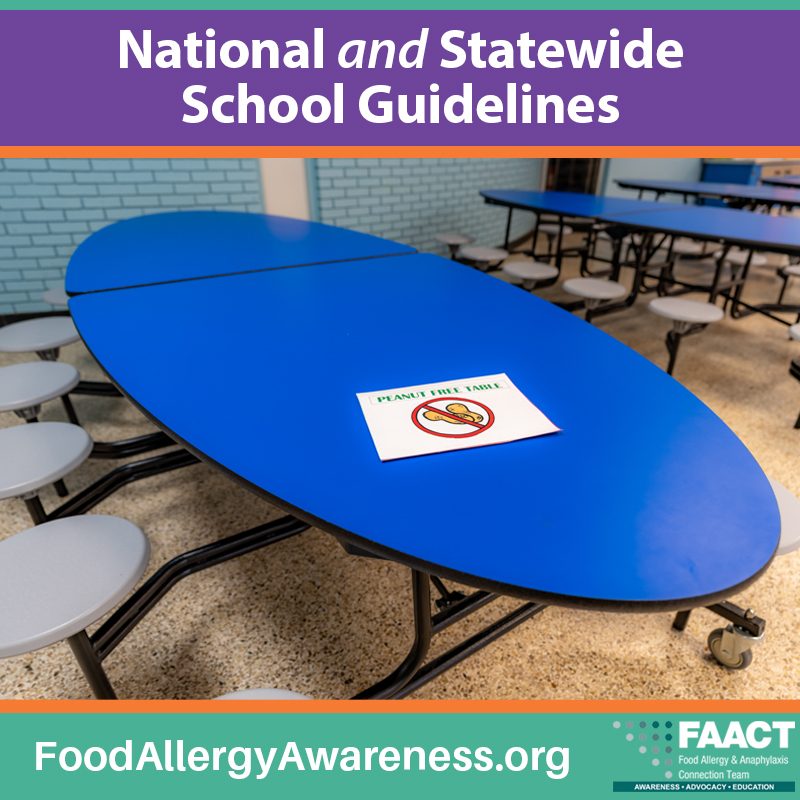National & Statewide School Guidelines

National Guidelines
In consultation with the U.S. Department of Education and a number of other federal agencies, CDC developed the Voluntary Guidelines for Managing Food Allergies in Schools and Early Care and Education Centers in fulfillment of the 2011 FDA Food Safety Modernization Act to improve food safety in the United States. Download Food Allergy Guidelines FAQs.
The Voluntary Guidelines for Managing Food Allergies provide practical information and planning steps for parents, district administrators, school administrators and staff, and ECE program administrators and staff to develop or strengthen plans for food allergy management and prevention. The Voluntary Guidelines for Managing Food Allergies include recommendations for each of the five priority areas that should be addressed in each school’s or ECE program’s Food Allergy Management Prevention Plan:
- Ensure the daily management of food allergies in individual children.
- Prepare for food allergy emergencies.
- Provide professional development on food allergies for staff members.
- Educate children and family members about food allergies.
- Create and maintain a healthy and safe educational environment.
Source: U.S. Centers for Disease Control and Prevention (CDC)
Statewide Guidelines
Guidelines for school food allergy management have been published by the following states. The links to state food allergy guidelines are provided solely as a service to our readers, and neither the listing nor the links constitute an endorsement by FAACT.
FAACT supports and encourages schools to follow the CDC Voluntary National Guidelines and will continue to advocate for Statewide Guidelines in the remaining states. If you are interested in advocating for guidelines in your state, Contact Us.

